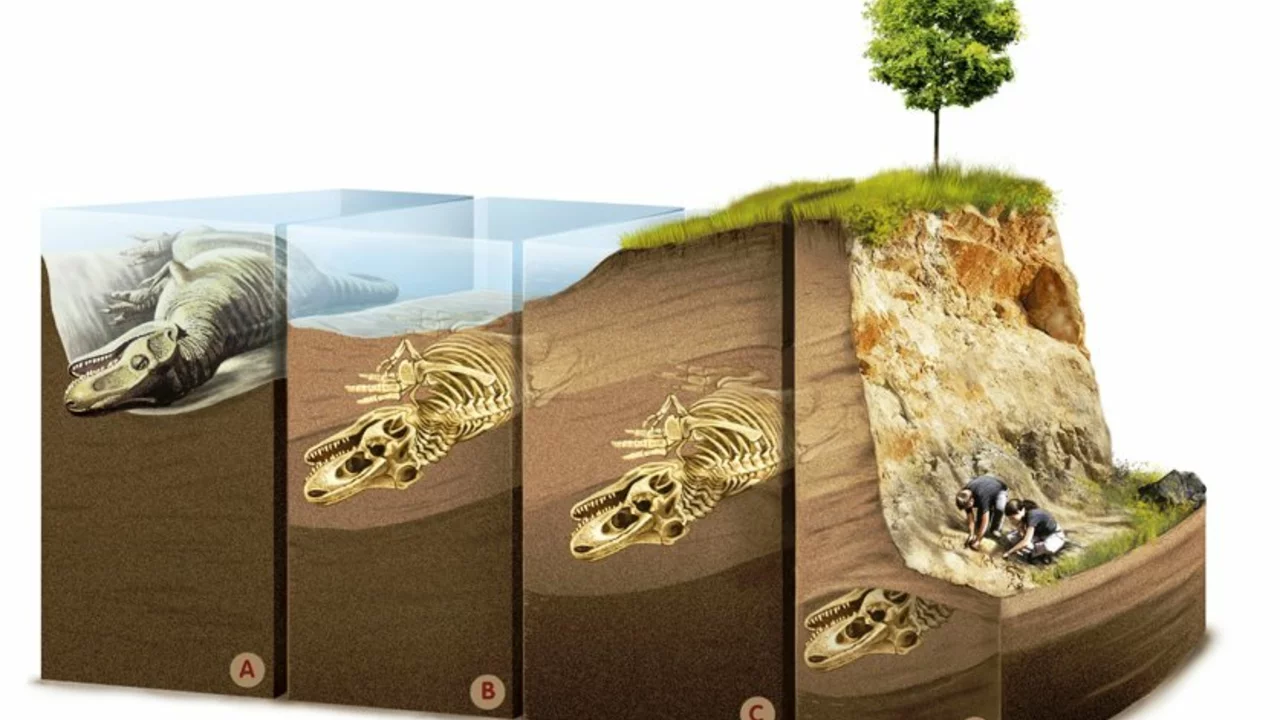The Basics of Fossil Formation
Alright. So let's start digging (pun absolutely intended) into the fascinating world of fossils. Widely recognized as the hard, rocky imprints that great-grandad used to ramble on about, fossils provide scientists a glimpse into life that existed millions of years ago. But hey, did you ever stop to wonder what sort of environmental conditions make it possible for fossils to form? It's not like strapping on some water wings and diving into Sydney Harbour is going to yield a treasure trove of prehistoric riches! Don't worry, that's exactly what we're here to explore today!
The Recipe for Making a Fossil
The recipe for making a fossil isn't like making a Lamington - pop it into the oven and voila! No mate, it's a bit more complicated than that. First things first, we need to understand that not every organism ends up becoming a fossil. Sadly, it's not in the stars for most. The sequence of events needs to be just right - think of it as a divine dance between death, burial, and preservation. And guess what? The timing is crucial!
Role of Rapid Burial
The crux of fossil formation is rapid burial. This might sound somewhat grim, but the faster an organism can be buried post-death, the better the chances of it ending up as a fossil. This is because the rapid burial safeguards the organism's remnants from scavengers, weather, or ecological cycles. I can't emphasise this enough folks, speed is of the essence!
A Sedimentary Tale
Oftentimes, the best place for this process to occur is in sedimentary basins filled with water. These locations act like enormous open graveyards, accommodating animal and plant remains and quickly covering them with sediment. Now, you might not see a connection here, but the connection between sedimentary rock and fossils is thicker than Vegemite on a slice of fresh bread. Sedimentary rock, which becomes home to millions of microscopic sediment particles, provides the ideal burial conditions for organic remains.
Decay and Mineralisation: The Long Sleep
Once the organism is quickly buried, it begins to decay, and mineralisation sets in. This is the long sleep - where the organism’s remains turn into stone. The voids and spaces left by the decaying substances fill up with minerals over time, creating an exact stone replica of the original organism. It's like a grand reveal, you lift the dome, and instead of a gourmet dinner, you get a fossil!
Tale of Two Fossil Environments: Marine Vs Land
Fossil formation can occur in both marine and land environments, but let me tell you, it's as different as chalk and cheese. Marine environments are great fossil hotspots as they support swift burial and mineralisation. Just picture that, an undersea burial ground filled with soon-to-be fossils! Meanwhile, on land, things are a bit trickier due to exposure to air and terrestrial beasts.
Factors that Hamper Fossil Formation
So, what can put a spanner in the works for fossil formation? Hard as it is to believe, our lovely Sydney climate would be an absolute nightmare to a potential fossil - the humidity, the occasional downpours, and the notorious cockatoos. All these factors can accelerate the disintegration of dead organic matter, making fossil formation about as easy as finding a snowball in the Outback!
The Ideal Fossil Environment: A Summary
In a nutshell (or should I say, encased in sediment), the ideal environment for fossil formation is a rapid burial scenario in water-based, sediment-rich conditions. The process then requires some serious patience, waiting millions of years for the magic of mineralisation to occur. If everything falls into place, you've got yourself a fossil.
Keeping the Past Alive
This journey into the heart of fossil creation is not only a fascinating exploration for curious minds, but is also essential in preserving our planet's history. As a Sydney lad with a passion for the past, I'm thrilled by each new fossil discovery. It's like the earth itself is sharing its biography with us, and that, my friends, is a tale worth preserving!

Write a comment